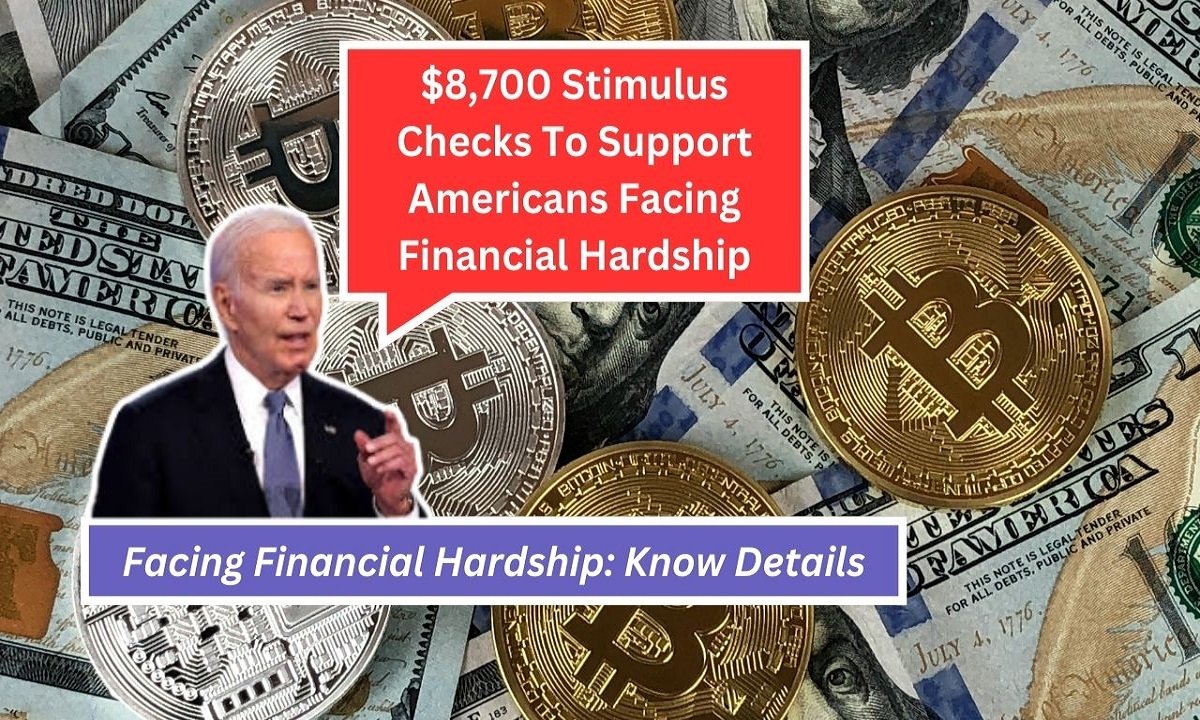The past few years have put immense financial pressure on many American households. From the struggles brought on by the pandemic to rising inflation and high living costs, keeping up with daily expenses has become challenging for millions. That’s why news of an IRS stimulus check worth $8,700 has sparked interest across the nation. If you’re wondering what this stimulus check is, who qualifies, and how it could make a difference, you’re in the right place.
Let’s dive into the details and break down everything you need to know about this potential relief for Americans facing financial hardship.
What is the $8,700 Stimulus Check?
The $8,700 stimulus check is part of a government initiative aimed at helping individuals and families facing financial hardship. While there have been previous rounds of stimulus payments, the $8,700 payment is unique because it’s specifically geared towards those struggling the most with day-to-day financial needs.
This relief measure is designed not only to help cover basic expenses but also to ease the burden of high costs, like rent, utilities, groceries, and healthcare. The IRS has been actively involved in distributing various forms of stimulus checks over the past few years, and this particular one aims to reach the people who need it the most.
Who Qualifies for the $8,700 Stimulus Check?
Eligibility for the $8,700 stimulus check mainly targets Americans experiencing financial hardships. Specific criteria are usually set to ensure the funds reach those who genuinely need assistance. Here are some of the common qualifying factors to consider:
- Income Level: The IRS often determines eligibility based on annual income. For instance, previous stimulus checks have used adjusted gross income (AGI) limits to decide who qualifies. While the exact threshold for the $8,700 check hasn’t been finalized, it’s expected to prioritize low- to moderate-income earners.
- Unemployment Status: If you’ve recently lost your job or experienced a reduction in hours, you might be eligible. High unemployment is a significant factor for these stimulus checks, as they aim to assist individuals facing job-related financial struggles.
- Dependents: Families with dependents, such as children or elderly family members, may also receive additional support. In many cases, having more dependents can increase the total amount you’re eligible for, as it reflects higher household expenses.
- Housing Instability: Individuals or families at risk of losing their homes due to overdue rent or mortgage payments could be prioritized. This check could act as a safety net, preventing people from falling into homelessness due to financial instability.
- Medical Hardship: If you or a family member has a medical condition that requires costly treatments, you might qualify for the stimulus to help with these expenses. Medical bills can be overwhelming, and the stimulus check aims to lighten that load.
How Will the IRS Distribute the $8,700 Stimulus Check?
If you’re eligible for the $8,700 stimulus check, the IRS has a few ways to get the funds to you. In most cases, the IRS will use the payment method associated with your most recent tax filing. Here’s what you can expect:
- Direct Deposit: For many recipients, the IRS will deposit the check directly into their bank account. This is the fastest method and ensures that you receive the funds quickly. If you’ve received a tax refund through direct deposit, this could be how your stimulus check arrives.
- Paper Check: If you haven’t set up direct deposit with the IRS, they might mail you a paper check. While it may take longer to arrive, this is a common way for the IRS to distribute payments to those without bank accounts.
- Prepaid Debit Card: In some cases, the IRS might send the payment as a prepaid debit card. This is typically for individuals without traditional banking access or who haven’t previously used direct deposit.
What Should You Do with the $8,700 Stimulus Check?
While the money is yours to use as you see fit, the intent behind the stimulus check is to help with essential needs. Consider focusing on necessities like:
- Paying Bills: Covering overdue bills like rent, utilities, and loans can relieve financial pressure and help prevent further complications.
- Buying Groceries: With food costs rising, this check can make a big difference in helping families put nutritious meals on the table.
- Covering Medical Expenses: Use the funds for outstanding medical bills or ongoing treatments, as these are often costly but necessary.
- Saving for Emergencies: If your immediate needs are met, consider saving a portion for future emergencies. It can provide peace of mind and act as a financial cushion.
Why is Financial Assistance Still Necessary?
The financial challenges many Americans face aren’t disappearing overnight. Inflation, high gas prices, and escalating housing costs all impact daily living. While the previous stimulus checks provided temporary relief, many people are still in need. The $8,700 stimulus check aims to provide more sustained support for those with continued financial struggles, helping them stay afloat and maintain their quality of life.
How to Apply for the Stimulus Check
Most of the time, you don’t need to apply for a stimulus check. The IRS typically uses your tax filing information to determine eligibility. However, it’s essential to ensure your information with the IRS is up-to-date. If you haven’t filed your taxes recently or have moved, consider updating your address or bank details with the IRS to avoid delays.
Conclusion
The $8,700 stimulus check is a beacon of hope for many Americans still grappling with financial hardship. This assistance could provide a much-needed lifeline, helping people to catch up on bills, afford essential items, and regain stability. If you think you may qualify, keep an eye out for updates from the IRS, and make sure your contact information is current. This financial relief is a reminder that sometimes, a little extra help goes a long way.
FAQs
Who is eligible for the $8,700 stimulus check?
Eligibility depends on income, job status, dependents, and financial hardship, such as overdue bills or medical needs.
How will I receive my stimulus check?
The IRS will send it via direct deposit, paper check, or prepaid debit card, depending on your tax filing method.
Is the $8,700 stimulus taxable?
Typically, stimulus payments are not considered taxable income, so you won’t need to pay taxes on it.
Do I need to apply for the stimulus check?
No, the IRS usually determines eligibility based on tax records, so there’s no application required.
When can I expect to receive my payment?
The IRS has not yet announced exact dates, but payments are expected to roll out soon. Stay tuned for official updates.





